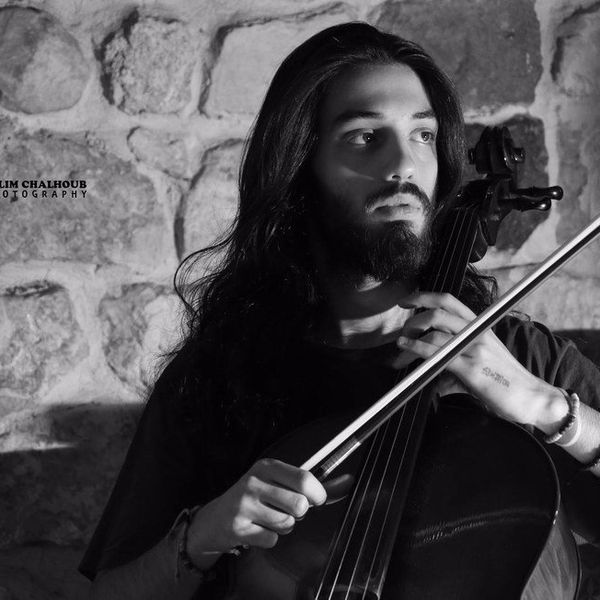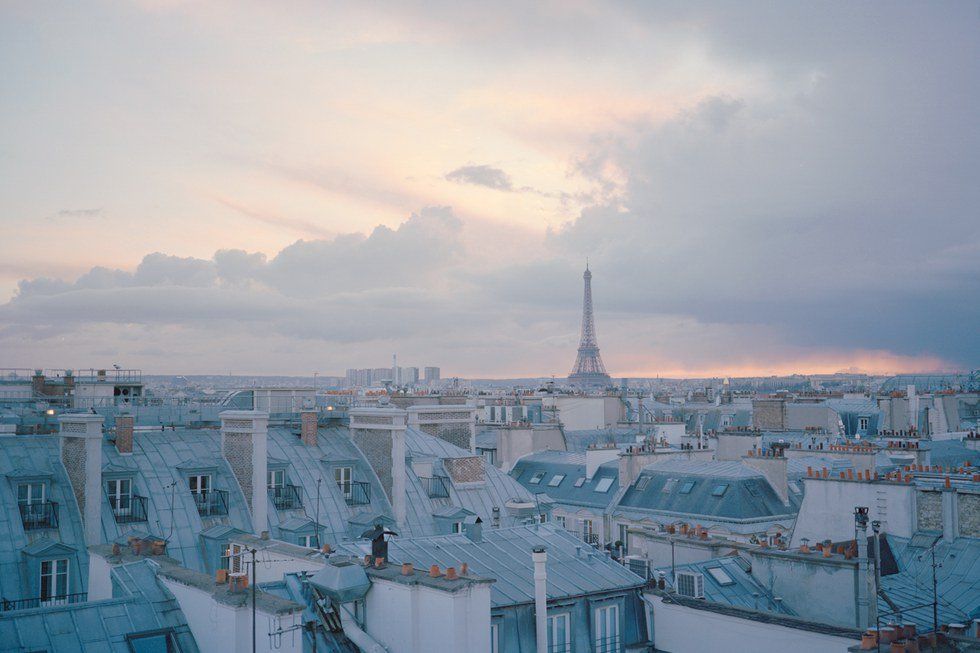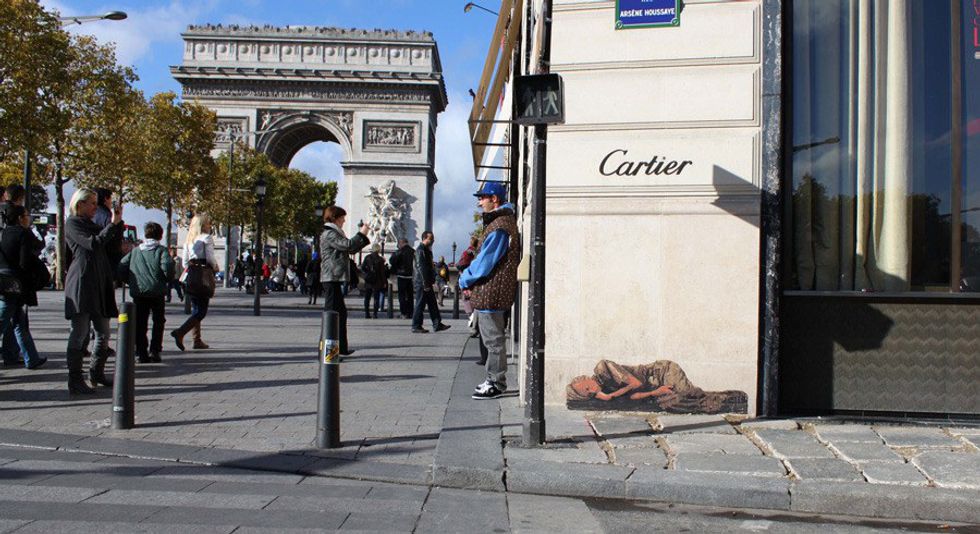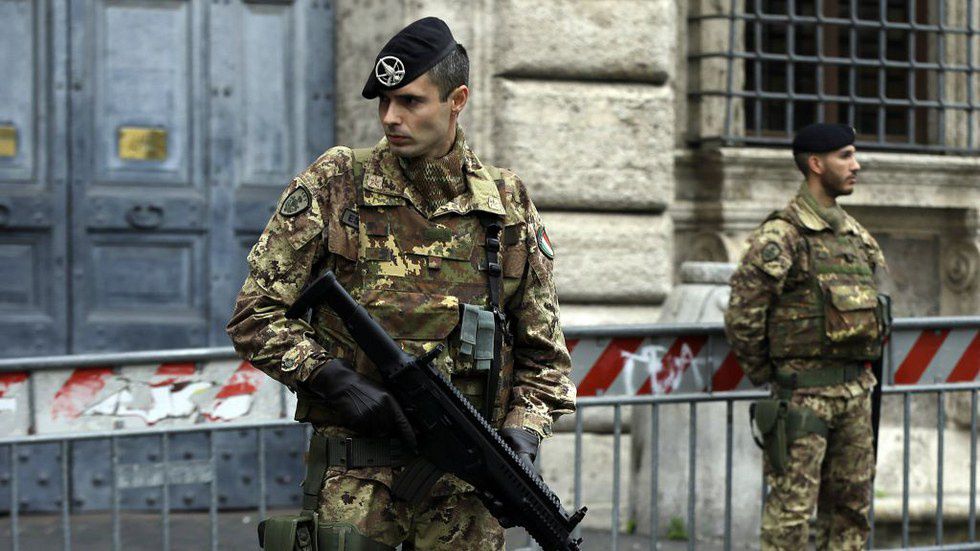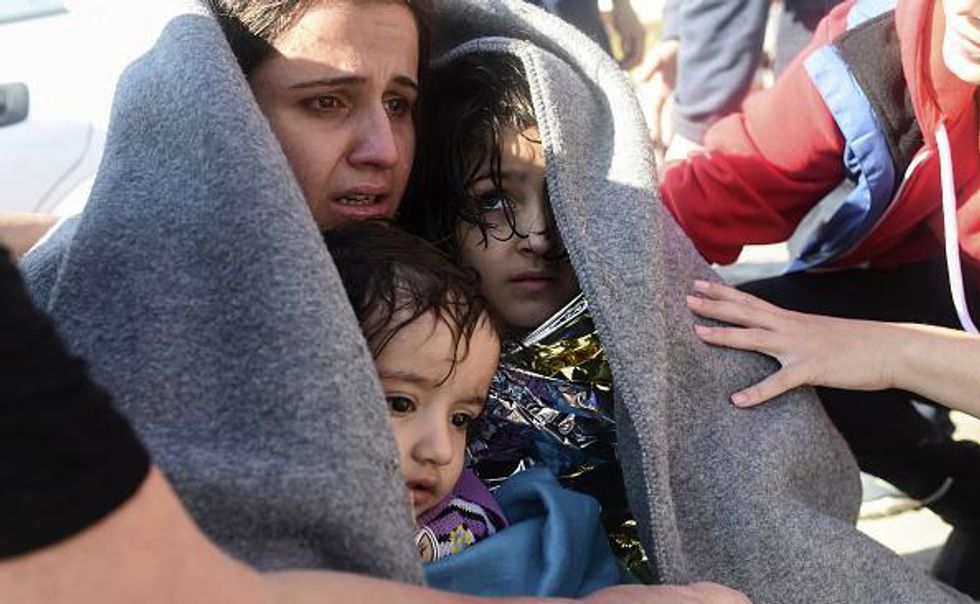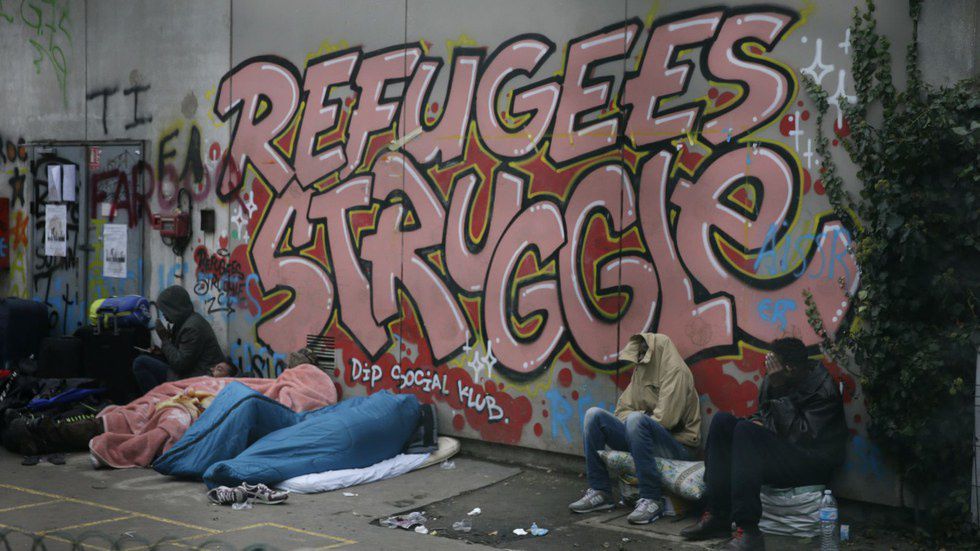After a long morning of travel, my friend and I finally reached a cab outside the Paris train station and watched the city fly by our windows as we made our way to the hotel. Almost immediately, we felt the city’s ancient magic as we drove past golden monuments and elaborately structured apartment buildings with elegant, iron balconies and window boxes filled with summer flowers. We saw people hugging dozens of baguettes to their chests on their way home from work and women riding bikes in high-fashion outfits and tourists buying plastic Eiffel Tower figurines and selfie sticks from street vendors. It was the same Paris I had remembered from my first visit years ago with my dad. But there was one new group of people that didn’t quite fit in with the serene, pastel-colored backdrop I and so many others associate with this romantic city.
On our way to dinner, we saw a grown man and his infant child sitting on a cardboard box on the sidewalk, fast asleep, with an almost-empty cup of coins placed in front of them. In Boston, where I go to school, you’d never see a homeless child sleeping on the street, so it was hard for me to believe what I was seeing. On our way back from dinner (almost midnight), we saw an entire family — a man, woman, and their three small children, huddled together on a cardboard box asking for change. The next day as my friend and I walked down the Champs Élysées, we saw multiple female refugees kneeling on the ground before their cups of spare change with their heads bowed towards their folded hands. One woman smiled hugely when someone placed a packet of cookies in her lap, another woman had a sign that read, “Refugee from Syria” and another woman was very pregnant. In front of large tourist sites and important banks and government buildings, French soldiers in black and camouflage uniforms with large guns patrolled entrances and exists.
I had been so distracted by the worry and excitement of my own vacation to understand the reality of the refugee crisis in Europe. Someone asked me if I was scared before leaving, and I replied with, “Only of losing my passport.” Of course, I had been keeping up with news I read on the internet before leaving. I’d cried over stories told by “Humans of New York’s” Brandon Stanton when he visited the Middle East and even wrote a research paper on the different opinions of right and left-wing politicians in France concerning Syrian refugees, but seeing homeless families on the streets of Paris put things into an entirely different perspective.
These refugees (the majority of which I noticed were women) had finally made it out of the violence of their own home country(ies) and fled to a city with an entirely different culture and language accepting refugees only to realize there is no help and no safe place for their families to sleep at night. Countries accepting refugees may seem like a blessing (and to some, they certainly are), but how are these families expected to continue their lives in a “safer” place if nobody is helping them find food and shelter? To my understanding, there are lots of French people who do offer to take refugees into their homes, but that’s obviously not the case for everyone, especially large families who arrived in Europe with the hope to stay together.
And to what extent is Europe really a “safe” place for these refugees to continue their lives? In a “New Statesman” article titled “What It’s Like to be a Syrian Refugee in Paris” by Sam Ball, Syrian refugee Walin al Omari says, “it felt like terrorism was everywhere ... we fled from terror and it found us again here. It feels like it is always behind us, stalking us.” Ball goes onto explain, "The irony is that the terrorist organisation that claimed responsibility for the Paris attacks, the Islamic State, is, along with Bashar al Assad’s army and other militant groups, responsible for the long list of atrocities that prompted many like Walid and Anas to flee their homes.”
I realize how little I truly understand about the struggles these refugees are facing. I don’t know what the crisis will look like 10 years from now. I don’t know how funding is possible for the hundreds of thousands of people fleeing into Europe. I cannot fathom the idea of my family, friends and neighbors being killed in front of me and having to seek refuge in a country where the language and culture are so unfamiliar. I cannot imagine radicals claiming Christianity as something they practice by the book and then being hated in other countries by association. I cannot imagine being “stalked” by terrorism. This issue is beyond me, but I do know that seeing so many homeless women and children begging for change on the streets of one of the most beautiful cities in the world broke my heart and opened my eyes at the same time, and I will never read another news article about refugees the same way again.

